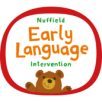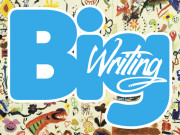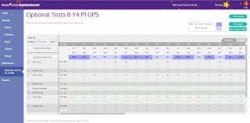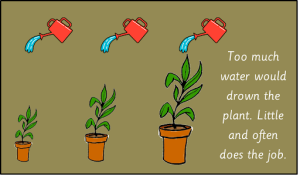
Assessment
Intent:
We aim that 100% of children make progress from their different starting points. Through ongoing formative and summative assessment, we ensure that children’s progress is tracked, celebrated and where necessary, challenged. Children need to be continually exposed to challenges and testing in order to prepare them for exams and challenging circumstances in the future. In doing so, this will ensure that pupils learn and exercise determination and resilience throughout their education and increase their academic maturity.
 EYFS - Across EYFS children are assessed upon entry using a Windsor Academy Trust agreed baseline assessment. If they enter 2 year old provision, the 2 year old check will also take place. Reception also completes the statutory Reception Baseline Assessment within the first 6 weeks of the
EYFS - Across EYFS children are assessed upon entry using a Windsor Academy Trust agreed baseline assessment. If they enter 2 year old provision, the 2 year old check will also take place. Reception also completes the statutory Reception Baseline Assessment within the first 6 weeks of the Autumn term or within the first 6 weeks that a child enters Reception (if they do not start at the beginning of the year unless it has already been completed at another setting.) A further three assessments are made during the Autumn, Spring and Summer terms to assess their progress and development. At the data entry points Nursery and 2 year old Provision also screen using Wellcomm. In Reception Neli screening takes place in Autumn 2 and after the 20 week program children are screened once more. Reception children are also screened using RWI Phonics screen half termly.
Autumn term or within the first 6 weeks that a child enters Reception (if they do not start at the beginning of the year unless it has already been completed at another setting.) A further three assessments are made during the Autumn, Spring and Summer terms to assess their progress and development. At the data entry points Nursery and 2 year old Provision also screen using Wellcomm. In Reception Neli screening takes place in Autumn 2 and after the 20 week program children are screened once more. Reception children are also screened using RWI Phonics screen half termly.
KS1 - Phonic Assessment - Reception complete an initial baseline and then every half term, matching the assessment used in Year 1 and Year 2. Children are placed in a progress group according to their phonic knowledge and receive daily phonics matched to sounds that they are secure with. At the end of year 1(and for those children in year 2 who did not pass the check in year 1) a phonics screening check is taken to ensure children are making sufficient  progress with their phonic skills. Children are asked to read (decode) 40 words. Most of these are real words but some are pseudo-words.
progress with their phonic skills. Children are asked to read (decode) 40 words. Most of these are real words but some are pseudo-words.
Whole-School - Across Year 1-6, baselines are formed using the end of year data, collected at the end of the previous academic year or key transition point. In addition to this, termly Assessments take place three times throughout the year (November, March and June), during assessment week. The following assessments are administered and data analysed:
 Summative assessments in Grammar, Reading and Maths - NTS/GaPS tests are used providing comparable data with the statutory end of the key stage assessments.
Summative assessments in Grammar, Reading and Maths - NTS/GaPS tests are used providing comparable data with the statutory end of the key stage assessments.- Writing across the school is assessed through analysing a child’s independent (Big Writing) writing against year group expectations. This generates a score from which progress can be seen. A teacher's judgement of attainment is made using the summative scores.
 Science units are assessed at the point of completion using post-block assessments. Teachers use the information from these assessments to make a judgement on a pupil’s attainment.
Science units are assessed at the point of completion using post-block assessments. Teachers use the information from these assessments to make a judgement on a pupil’s attainment. - Theme (History, Geography, Art, DT and Music) is assessed through completion of a KAT (Key Assessment Task) at the end of each unit of teaching. Additionally, in history and geography, cumulative quizzing is used before, during and after a unit, to assess knowledge gained and key points revised.
- RE, PSHE, MFL and Computing are all assessed using spreadsheets completed by teachers, held centrally by SLT and subject leaders.
- Bi-Weekly, Maths Meetings are assessed in order to identify gaps in knowledge and inform future teaching.
 Bi-Weekly, arithmetic is assessed in order to identify gaps and form intervention groups.
Bi-Weekly, arithmetic is assessed in order to identify gaps and form intervention groups.- Weekly, spelling pre-test and post-test scores are analysed to identify gaps and form intervention groups.
- Teachers use QLA from summative assessments to inform planning and next steps to ensure ALL children progress.
- Senior Leaders use data to inform whole-school progress and attainment as well as hold staff to account for the performance of their cohort.
Moderation:
Moderation takes place across our trust schools as well as external moderation for year 2 and 6. We moderate EYFS ELGs, reading, writing, maths and science. As an additional moderation tool, our pupils undertake ‘No More Marking.’ Each pupil's writing is assessed by a panel of judges and then compared nationally.
How do we communicate progress and attainment with parents?
Parents are informed of their child’s progress in parent's evenings and annual school reports with targets moving forward. SATs results and other statutory results are shared with parents in line with government guidelines.
Impact:
How is impact measured?
All children are expected to make progress across all areas of the National Curriculum. This is measured using NTS assessment analysis as well as using INSIGHT. Teachers also use their record book or subject leader tracked spreadsheets to measure summative data.
How do we know children have made progress?
Scores are measured and carefully analysed against teacher assessments to ensure sufficient progress in being made. If a child does not make sufficient progress, immediate intervention takes place to support the swift progression.
How do we challenge and support lack of progress?
Teachers have a half-termly pupil progress meeting with a member of SLT as well as the school SENDCO to discuss any children that are identified as a concern, any strategies and intervention is immediately put into place. This is then monitored at the next pupil progress meeting to ensure progress is made. If this is not evident then alternative provision to support swift progression will be put into place.
How are we inclusive?
 We ensure that through carefully scaffolded work, all children are challenged to succeed in all areas across the National Curriculum.
We ensure that through carefully scaffolded work, all children are challenged to succeed in all areas across the National Curriculum. - Children’s needs are taken into consideration and timings for tests given can be adapted following adherence to government guidance.
- Pupils in receipt of an IEP or IBP have individual targets which are measured and achievable for the child. These are reviewed formally on a termly basis when shared with parents. In between reviews, teachers adjust targets as soon as pupils achieve these.
- Children are well prepared for assessment week and careful preparation is sought to adapt test conditions where necessary such as smaller pupil ratio, 1-1 readers for maths.
- Children are exposed to test style questions and conditions throughout the year in order to fully prepare children to sit any given assessment.

